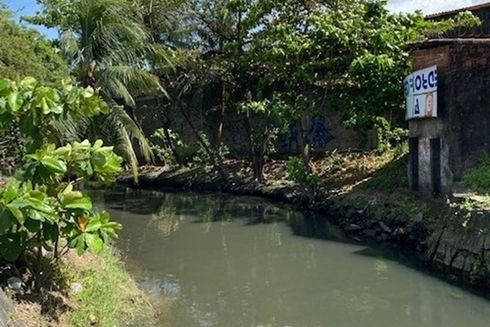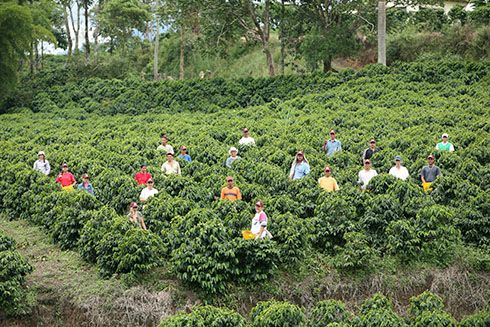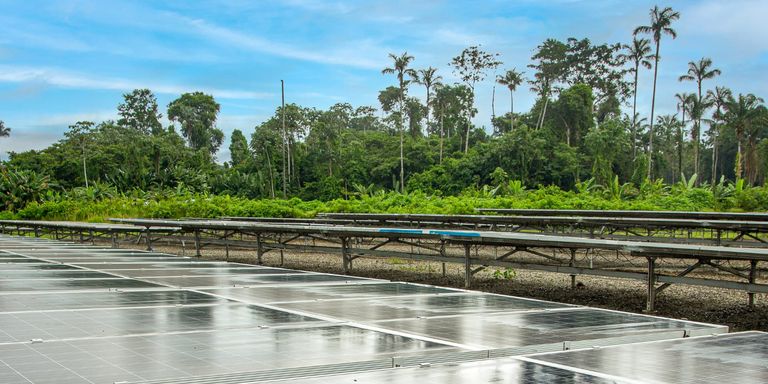The IDB committed to environmental and social sustainability, approved a new Environmental and Social Policy Framework (ESPF) that entered into effect on October 31st, 2021.
The ESPF and its guidelines result from a rigorous drafting and review process that spanned 32 months and was based on an inclusive, transparent, and participatory process.

The Environmental and Social Policy Framework (ESPF) includes solid provisions for human rights, labor, community health, and safety, and more explicit provisions for people with disabilities, vulnerable groups, Indigenous Peoples, people of African descent, or other traditional groups, and considers potential risks to workers and communities, including risks associated with pandemics and epidemics, and is aligned with international best practices on biodiversity protection and conservation.
The ESPF also reinforces standing commitments to gender equality, stakeholder engagement, disaster, climate change resilience, minimizing Greenhouse Gases (GHG) emissions, and protecting the region’s natural capital.

Additionally, the ESPF includes specific circumstances under which free, prior, and informed consent is required from indigenous peoples and requires differentiated management measures for vulnerable subsections of the population, including African descendants, persons with disabilities, and people of different sexual orientations and gender identities, among others. To ensure an open, transparent, and inclusive engagement during project design and implementation, the ESPF also includes a stand-alone Standard on Stakeholder Engagement and Information Disclosure which, among other enhanced provisions, requires clients to implement project-level grievance mechanisms.
The Framework includes a policy statement and ten Environmental and Social Performance Standards (ESPS) that reflect the environmental and social commitment for Bank-financed projects, while minimizing risks and negative impacts on people and the environment.
Why have the IDB's environmental and social policies changed?
The environmental and social context of Latin America and the Caribbean region has evolved since the IDB’s current safeguards policies were developed more than 15 years ago. The ESPF modernizes many of the requirements under those policies into one consolidated and comprehensive framework that better responds to the environmental and social challenges facing our countries, focusing on issues related to social inequality, climate change, and depletion of natural capital.
What is the scope of its application?
The ESPF applies to all new IDB-financed investment loans, investment grants, and investment guarantees. It also applies to certain Policy-Based Loans and Technical Cooperation. Existing projects will continue to apply the Bank’s current Safeguard Policies.
What policies does the ESPF replace?
The ESPF supersedes the environmental and social risk and impact management sections of the following sectoral policies: Environment and Safeguards Compliance Policy (OP-703); Disaster Risk Management Policy (OP-704); Involuntary Resettlement Policy (OP-710); Policy on Gender Equality in Development (OP-761); and Indigenous Peoples Policy (OP-765).
Sectoral Policies OP-703; OP-704; OP-710; OP-761; and OP-765 will continue to apply for all matters related to the Bank's mainstreaming work on issues in those Policies. “Mainstreaming” refers to IDB’s proactive actions strategically addressing environmental, and social issues as cross-cutting dimensions of development.

The environmental and social context of Latin America and the Caribbean has evolved since the IDB's safeguards policies were developed more than 15 years ago. The new Environmental and Social Policy Framework emerges as an opportunity to improve and harmonize environmental and social standards within the IDB group and with other multilateral organizations. At the same time, it strengthens the efforts for the sustainable recovery of the region.

Safeguards policies improve lives by increasing the sustainability of projects and reducing negative impacts on people and the natural resources on which they depend.
Discover the topics in which we work to improve lives in Latin America and the Caribbean.
Explore our offices across countries and the work they do to improve lives.
Improving lives, bringing long-term economic growth, and reducing poverty and inequality in Latin America and the Caribbean depend on socially inclusive and environmentally sustainable development.

